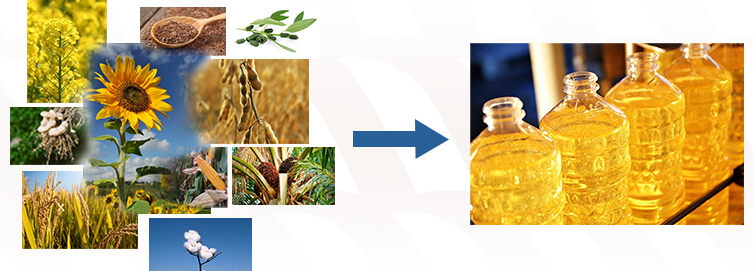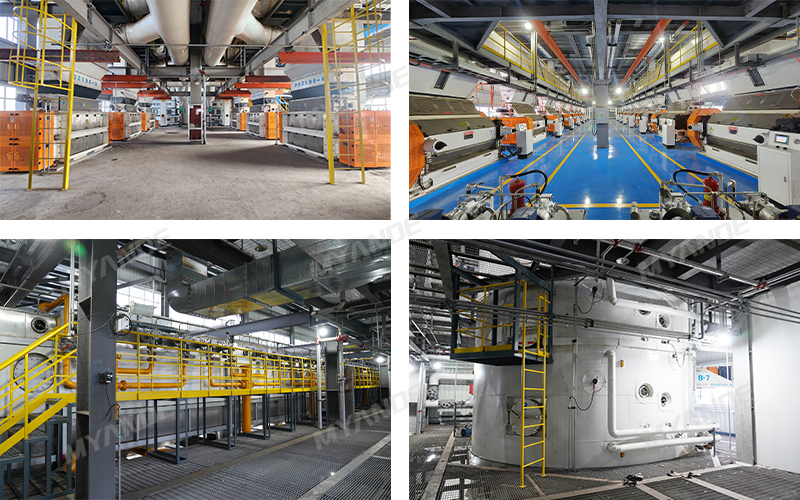

Maximizing Efficiency and Reducing Waste in Edible Oil Processing: Solutions and Strategies
Apr 07, 2023
Edible oil processing involves various stages, from seed preparation to extraction, refining, and packaging. Each stage requires specific equipment and techniques to ensure the highest quality standards while maximizing efficiency and minimizing waste. The oil extraction stage, in particular, plays a crucial role in determining the yield, quality, and profitability of the final product. In this article, we'll explore some strategies and solutions to optimize oil extraction while reducing waste in the processing plant.
Understanding Edible Oil Extraction Process
Edible oil extraction involves separating the oil from the solid or liquid matrix, which can be oilseeds, nuts, fruits, or other oil-bearing materials. The extraction method can vary depending on the raw material, the oil content, and the quality requirements of the final product. The most common extraction methods include mechanical pressing, solvent extraction, and enzymatic extraction.

Mechanical pressing is the oldest and simplest method, and it involves using a mechanical press on the raw material to squeeze out the oil. This method works best for materials with high oil content, such as rapeseed, sunflower seed, or peanut. However, it has some limitations, such as low extraction efficiency and the production of high-moisture and high-temperature by-products.
Solvent extraction involves using a solvent such as hexane to dissolve the oil from the raw material. This method is more efficient than mechanical pressing and can extract up to 98% of the oil. However, it requires more complex equipment and safety measures and produces a solvent-oil mixture that requires further processing and recycling.
Enzymatic extraction is a newer method that uses enzymes to break down the cell walls of the raw material and release the oil. This method is gentler and more environment-friendly than solvent extraction, but it requires more time and higher costs.
Optimizing Oil Extraction Efficiency
To optimize oil extraction efficiency, it's essential to choose the right method and equipment based on the raw material, the oil content, and the quality requirements. Here are some strategies to consider:
1.Pre-treatment: Pre-treating the raw material can improve the efficiency and quality of oil extraction. Pre-treatment methods include cleaning, drying, heating, conditioning, cracking, and flaking the raw material to remove impurities, reduce moisture, and facilitate the oil release.

2. Control variables: The variables that affect oil extraction efficiency include pressure, temperature, time, and moisture content. By controlling these variables through process automation and monitoring, you can optimize the oil yield and quality and reduce waste.
3. Choosing the right equipment: The equipment used in oil extraction can vary depending on the method and the raw material. For instance, mechanical press machines can vary in size and pressure, while solvent extraction equipment can include extractors, evaporators, and condensers. It's essential to choose reliable and efficient equipment that meets your production needs and quality standards.
Reducing Waste in Oil Extraction
Oil extraction can generate various types of waste, including solid residues, liquid effluents, and greenhouse gas emissions. Reducing waste not only benefits the environment but also helps to improve the bottom line by reducing disposal costs and increasing the value of by-products. Here are some ways to reduce waste in oil extraction:

1. Recovering by-products: By-products such as meal, hulls, and spent solvent can have value and can be used for animal feed, biofuels, or other industries. Recovering these by-products can generate additional revenue while reducing waste.
2. Recycling water and solvent: Water and solvent used in oil extraction can be recycled and reused to reduce the consumption and disposal of fresh water and solvent. This also helps to reduce the environmental impact of the process.
3. Managing solid residues: Solid residues from oil extraction, such as seed cake, hulls, or pulp, can be added to meal, composted or used for energy production. Managing these residues can reduce the waste volume and contribute to sustainable practices.
How Myande Group Can Help
Myande Group is a leading provider of equipment and engineering solutions for the Edible Oil Processing industry. They specialize in designing, manufacturing, and installing custom-made plants and equipment for oil extraction, refining, and packaging. With over 20 years of experience and a strong commitment to innovation, sustainability, and quality, Myande Group has become a trusted partner for 1000+ customers worldwide. They provide a wide range of solutions and services, including oilseed pre-treatment, solvent extraction, oil refining, oleochemicals, HVO pre-treatment and etc. By choosing Myande Group as your partner, you can benefit from their expertise, authenticity, trustworthiness, and experience in delivering cost-effective and high-efficiency solutions for your oilseed, oils & fats processing needs.
In conclusion, optimizing oil extraction efficiency while reducing waste is a critical challenge for the Edible Oil Processing industry. By adopting the right strategies and solutions, such as pre-treatment, control variables, equipment selection, by-product recovery, recycling, and waste management, you can increase your production efficiency, generate additional revenue, and contribute to a sustainable and responsible industry. Myande Group can provide you with the equipment and engineering solutions that you need to achieve these goals and meet the highest quality standards.


